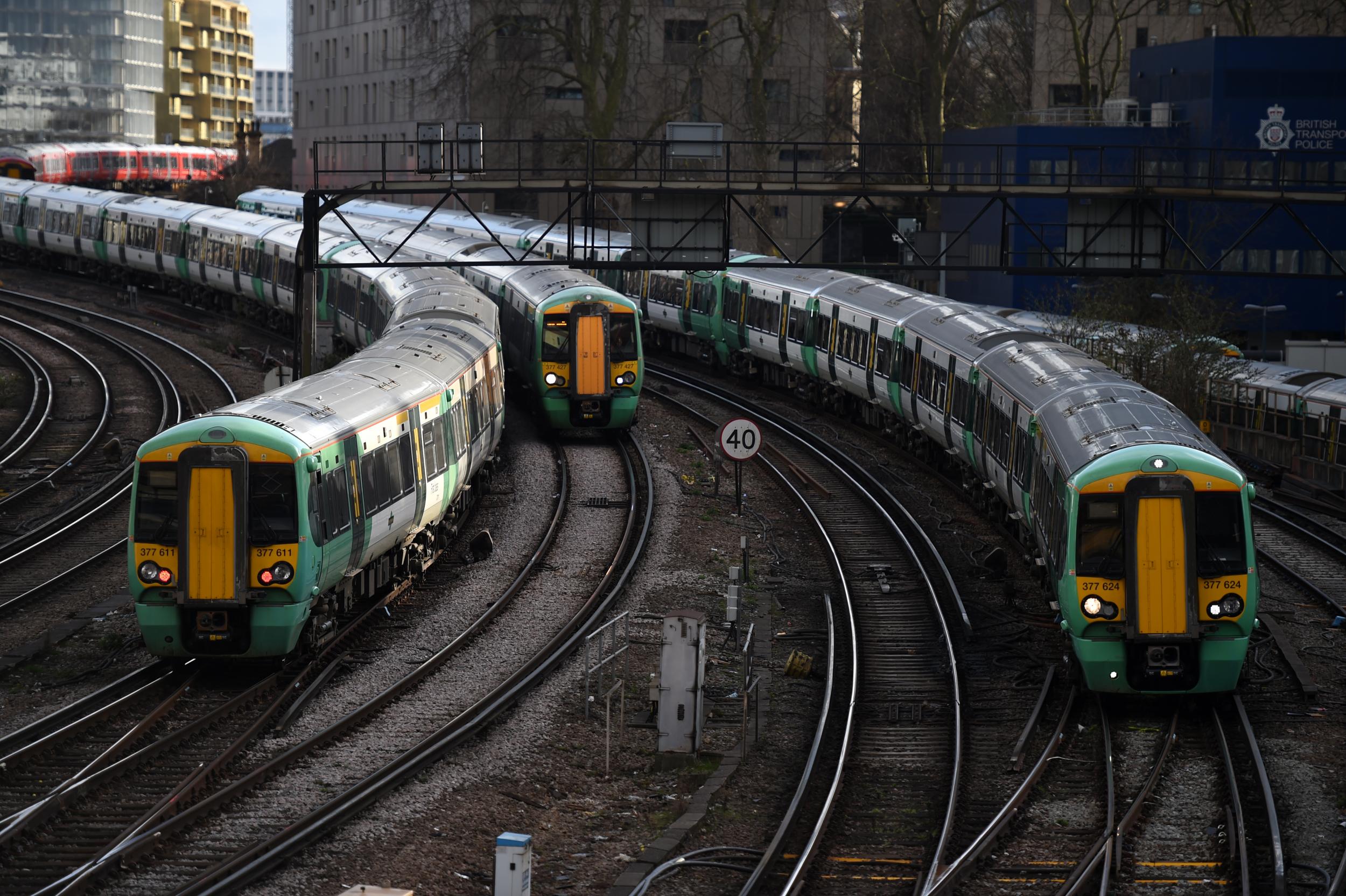British trains miss out stations 1,000 times a week – and GTR are the worst
‘Failure to stop’ incidents on Southern have increased by a quarter in four years

Thousands of passengers each day are left standing on the platform by trains that miss out stops – and numbers are increasing.
Network Rail provided data from April 2017 to February 2018 in response to a freedom of information request by the BBC.
In 10 months, more than 52,000 trains missed scheduled stops. “Failure to stop” events, better known as stop-skipping, usually happen during times of disruption. When one or more trains is running seriously behind schedule, the operator may decide to miss out one or more intermediate stops.
On journeys in south-east England, where most stop-skipping occurs, each station call typically adds two minutes to the journey.
Between Brighton and Gatwick, for example, non-stop trains cover the 25 miles in 24 minutes, while those that stop at each of the seven intermediate stations take 14 minutes longer.
If earlier problems have led to delays building, stop-skipping means the normal service can be restored more quickly. The practice can also prevent fast trains getting stuck behind a stopping service. But it causes delays and difficulties for passengers hoping to get on or off the train.
Analysis by The Independent for trains since last April shows that one in 60 GTR trains missed stops. That is about 25 per cent worse than the corresponding figures four years ago.
GTR runs Southern, Thameslink, Great Northern and Gatwick Express services, and operates more trains than any other franchise.
Southern commuters have endured dozens of strikes in a long and bitter dispute over the role of guards. It has the highest incidence of stop-skipping.
A GTR spokesperson said: “At times of disruption we aim to minimise the number of passengers delayed across our network.
“Skipping a stop is something we only ever do as a last resort, when a train running late would otherwise prolong the disruption.
”We operate the country’s most congested rail network and with a train departing every 27 seconds on average, even a minor delay to one train can cause a widespread and long-lasting knock-on effect to many other services and passengers across many routes.
“There is no financial incentive to miss a stop because it counts as a partial cancellation, for which we incur a financial penalty.
”We do sympathise with the passengers affected, ask them to bear with us and assure them that we only skip stops to avoid extensive disruption to many more passengers.
“If anyone's journey is delayed by 15 minutes or more then they can claim compensation – indeed this will be automatically generated if they are using our 'Key' smartcard.”
Next worst is South Western Railway, on which one in 70 trains skipped stops. In third place, one in 100 Southeastern trains missed stations.
Heathrow Express had no stop-skipping incidents; the only intermediate station is Heathrow Central, which has never been missed. Among “normal” train operators, the best-performing operators are Chiltern (one in 700) and Virgin Trains East Coast (one in 600).
A Department for Transport (DfT) spokesperson said: “Our railways are more intensively used today than at any time in our history.
“Across the network, fewer than 1 per cent of stops are skipped per day. While any inconvenience caused by stop-skipping to passengers is regrettable, it helps restore the timetable, benefiting many more people across the wider network.”
The DfT stipulates: “Train operators must have due regard for the onward travel opportunities of the passengers that are adversely affected when stops are skipped.”
Join our commenting forum
Join thought-provoking conversations, follow other Independent readers and see their replies
Comments